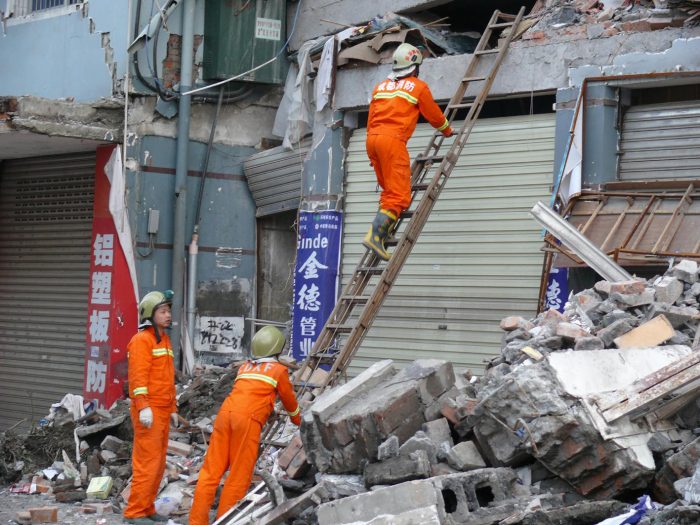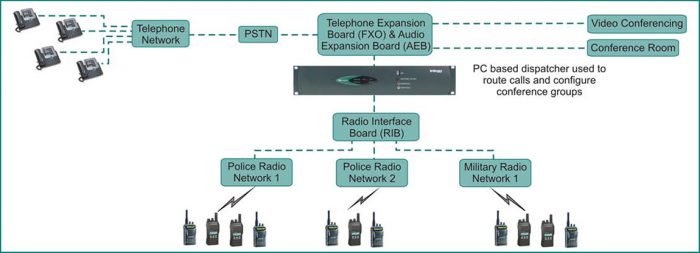Map showing epicenter of the May 2008 earthquake
The client was the Sichuan local government, a region situated in south western China which has struggled to cope with the exceptional demands placed upon it in recent years by natural disasters such as the 2008 earthquake which killed in excess of 69,000 people and left the area devastated. The Mercury solution provided by Trilogy allows the local government agencies to bridge the gap created by destroyed networks and incompatible communications systems and therefore act in conjunction with one another. This includes the regions Police, local government officers and any on-site military. Mercury makes effective communication possible in even the most arduous conditions.
The Challenge
In normal operation most agencies do not have a need to talk outside of their own network but if it does come up as a requirement they can do so via telephone or through an intermediary. However, when the unthinkable happens the situation demands that the separate agencies come together and act as one. This is in spite of the destruction of communications infrastructure such as radio towers, antenna’s and disruption to the power grid. In Sichuan this includes local government officials on telephones or Intercom panels in a control room, on-site military personnel over military grade VHF radios and local police utilizing their 350 MHz MPT1327 radios.
Amongst the critical roles they must fulfill are search and rescue, monitoring of water reservoirs, logistics management, reporting to and from the local HQ and keeping the flow of information back to Police HQ in Beijing open. These activities must be carried out regardless of the difficulties posed by challenging terrain, on- going flooding, poor transport and an unreliable power supply.
The critical nature of communications lies in its ability to deploy the best resource at the right location at the most appropriate time. Resources are limited and the demands on them far outweigh their capability so to have any degree of success they must work efficiently, good communication across agencies enables this.

The devastation meant numerous rescue teams had to be coordinated
The Solution
The solution involved the installation of a Mercury Interface Unit (MIU) into the local HQ although it could also have been installed in a mobile command vehicle. The MIU is equipped with Radio Interface, Telephone Expansion and Audio Expansion boards which allows the system to accommodate up to 32 devices including a number of radios and telephones, in Sichuan there are 4 telephone lines, 2 police and one military radio, analog audio from a video conferencing facility and audio from a conference room (desktop microphones and speakers).
In order to direct a number of different agencies who are all working to a common overall strategy it is necessary to be able to address groups of relief workers at a specific location according to common group instructions rather than by the agency to which they belong. In addition it is important to be able to dynamically arrange direct communications between staff working on different radio networks. These are core elements of the Mercury system and are accessed through the fully featured software which users can use to unlock a wealth of facilities depending on the requirements of any particular emergency.
Examples of supported operations include:
- Cross Dialing - Telephone users dial and call radio groups, Desktop Panels and conference room microphones, or vise versa.
- Full Call Dispatch Facility - A user-friendly GUI is provided to allow full control of all types of audio sources on a unified operator panel. Functions include multiple-source monitoring, making/ answering phone calls, managing conferences, speaking to radios, authorizing speak/listens etc.
Equipment used
- Mercury Interface Unit with Radio Interface (RIB) and Telephone Expansion (FXO) and Audio Expansion (AEB) Boards fitted
Key Challenges
- Interoperability – disparate communications devices need to communicate freely
- Real Time Communications – information flow should be without delay regardless of the number of call participants
- Reliability – critical applications require robust, proven solutions
- Resilience - communications must continue regardless of the situation on the ground
Key Features of the Trilogy Solution
- Full interoperability between all types and bands of radio, conventional, cell and SIP phones and almost any other audio device enables the inclusion of any required participants
- Real-time two way one to one, one to many or full conference calls are supported
- Mercury is a field proven, COTS product with installations around the globe
- Mercury allows operators to find alternative routes providing resilience to compromised infrastructure assets

Related Articles ---------